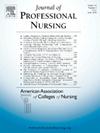探讨改良动机访谈干预护生自我照顾的效果
IF 2.9
3区 医学
Q1 NURSING
引用次数: 0
摘要
护理专业的学生有压倒性的学术责任,这对他们的自我照顾和幸福产生了负面影响。因此,有必要研究干预措施的有效性,以提高护生的自我护理能力。目的探讨改良动机访谈(MMI)干预对护生自我护理的影响。方法采用实验设计两组(干预组和对照组)和两个数据收集时间点。样本包括137名护生:干预组(n = 70)和对照组(n = 67)。干预组接受改良的动机性访谈干预。对照组在等待名单上,在完成数据收集后进行干预。采用自我护理量表和自我护理自我效能感量表进行数据收集。统计分析以重复测量方差分析为主,其次为方差分析和t检验。结果干预对因变量线性组合的影响有统计学意义:Pillai's Trace = 0.07, F (4,132) = 2.57, P = 0.04。随访分析发现,干预组受试者干预后自我照顾量表、自我照顾自我效能的平均得分均高于对照组。结论本研究显示了改良动机访谈干预在提高护生自我护理能力方面的潜力。本文章由计算机程序翻译,如有差异,请以英文原文为准。
Examining the effect of modified motivational interviewing intervention on nursing students' self-care
Background
Nursing students have overwhelming academic responsibilities that negatively affect their self-care and well-being. Consequently, it is necessary to study the effectiveness of interventions that could improve nursing students' self-care.
Purpose
To examine the effect of the modified motivational interviewing (MMI) intervention on nursing students' self-care.
Methods
An experimental design two groups (intervention and control) and two data collection time points was used. The sample comprised 137 nursing students: intervention (n = 70) and control (n = 67). The intervention group participants received a modified motivational interviewing intervention. Those in the control group were on a waiting list and were offered the intervention after finishing the data collection. The Self-Care Inventory and Self-Care Self-Efficacy scale were used to collect the data. Repeated measures MANOVA was the main statistical analysis test and followed by ANOVA and t-test.
Results
The results showed that the intervention had a statistically significant effect on the linear combination of the dependent variables: Pillai's Trace = 0.07, F (4, 132) = 2.57, P = .04. Follow up analyses revealed that the intervention group participants had statistically significant higher mean scores of the three Self-Care Inventory scales and self-care self-efficacy post-intervention than the control group participants.
Conclusion
This study showed the potential of the modified motivational interviewing intervention in improving nursing students' self-care.
求助全文
通过发布文献求助,成功后即可免费获取论文全文。
去求助
来源期刊
CiteScore
4.80
自引率
8.00%
发文量
153
审稿时长
52 days
期刊介绍:
The Journal will accept articles that focus on baccalaureate and higher degree nursing education, educational research, policy related to education, and education and practice partnerships. Reports of original work, research, reviews, insightful descriptions, and policy papers focusing on baccalaureate and graduate nursing education will be published.

 求助内容:
求助内容: 应助结果提醒方式:
应助结果提醒方式:


